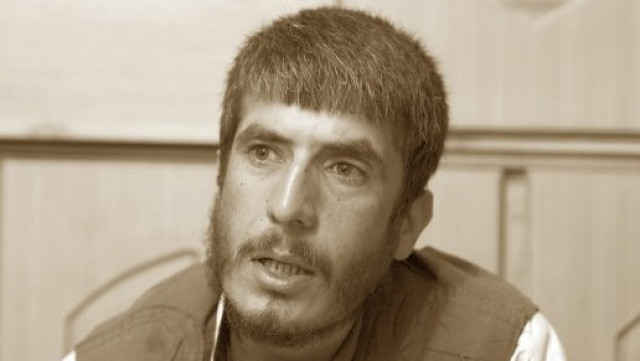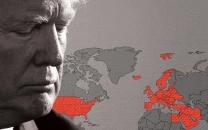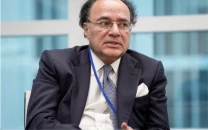A would-be suicide bomber’s tale

But for the last six months, he has been a dedicated police officer and now barely recognises the young jihadi he once was. Hameed said he turned his life around after realising that the only person who would benefit from his mission was an uncle who sold him to religious extremists in Pakistan. “Now I’m very happy,” the 25-year-old said. “I can earn a living as a policeman.
I get a good salary. Even after deciding to become a suicide bomber, I didn’t get anything. “My uncle took all the money, a million Pakistani rupees. I didn’t get a single rupee,” Hameed told AFP. The security situation in Afghanistan makes Hameed’s story difficult, if not impossible, to verify independently. But most tellingly, the man Hameed was sent to kill - the police chief of Wardak province, west of Kabul - says he believes his young recruit.
“I was under pressure from both the Taliban and the (Al-Qaeda and Talibanlinked) Hizb-i-Islami to leave the government post,” said General Abdul Yameen Muzafaruddin. “But I didn’t care. That’s why this guy was appointed to kill me,” he added. Hameed’s experience is in line with the methods of militant groups, including the Taliban, as they increase their attacks against the 126,000 foreign troops in Afghanistan and the country’s westernbacked government.
According to western officials who have contact with all parties in the bloody eightyear conflict, suicide bombers are trained in neighbouring Pakistan, then sent back over the porous border with specific missions. “We were taken to a madrassah where 150 Afghan students were living under the supervision of Pakistani teachers,” Hameed said. “It was there soon after I arrived that I was told for the first time that I was going to be trained for a suicide bombing mission. I was assigned to attack the Wardak police chief, General Abdul Yameen Muzafaruddin.
” He and about 15 other Afghans were trained in how to put on suicide vests, how to choose the target and how to stay calm, Hameed explained over tea in Kabul after a threehour trip by car from his home in volatile Wardak. Hameed said he and the other trainee bombers were eventually given their own vests loaded with eight kilogrammes of explosives and sent back to Afghanistan, eagerly anticipating their missions. But, he said: “Eventually it dawned on me that if I blew myself up it would be for nothing.
There was no benefit to me or my immediate family. My uncle had all the money.” So, after weeks of agonising, he contacted another uncle, a commander of a police post who took him to meet the man he had been sent to kill. Hameed told the police chief to his face of his assassination plan and then surrendered his explosives-packed vest. “He (Muzafaruddin) invited me to join the police force to work with my uncle,” said Hameed.
Despite the constant danger of insurgent attacks that Afghanistan’s fledgling police force faces, Hameed says he is now happy with his life and the job. “I think that Afghanistan is a mess and we have to accept that to make it a better place, we must face risks,” he said. “If we do not accept that there is risk involved in trying to make life in this country better, then we will never reach the point where life is good.”



















COMMENTS
Comments are moderated and generally will be posted if they are on-topic and not abusive.
For more information, please see our Comments FAQ